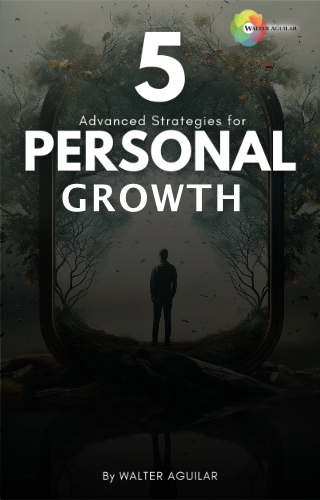In the quest of personal growth, we frequently focus on outer factors such as goal setting, good habit cultivation, and improving our skills. While all of these characteristics are undeniably important, we often overlook a vital component that affects human development: sleep. As a COR.E Dynamics Specialist, I am aware of the important impact that adequate sleep may have on mental health, emotional resilience, and general well-being. In this post, I will look at the evidence behind how important sleep is and how it may help you on your personal growth journey.
The Science of Sleep
Sleep is more than simply a rest hour; it is an intricate physiological process that is essential for maintaining and improving our physical and mental health. During sleep, several critical processes occur:
- Memory Consolidation: Sleep helps to consolidate and organize memories, making it easier for us to
learn and remember information. - Emotional Processing: During sleep, our brains process and regulate emotions, allowing us to
effectively cope with life’s difficulties. - Physical Restoration: Sleep is when the body repairs tissues, supports growth, and strengthens the
immune system. - Stress Hormone Regulation: Getting enough sleep helps manage stress hormones, which reduces our vulnerability to stress-related health problems.
Impact on Cognitive Function
Quality sleep is related to better memory and thinking skills. Here is how.
- Enhanced Problem-Solving: A well-rested mind is more able to think creatively and solve problems.
- Improved Focus and Concentration: Sleep helps us maintain prolonged attention and stay focused on tasks, resulting in greater productivity.
- Optimal Learning: Sleep is required to optimize learning and the acquiring of new skills or knowledge.
- Better Decision-Making: Getting enough rest helps us make more reliable and less impulsive
decisions.
Emotional Resilience and Wellbeing
Emotional resilience is the ability to bounce back from challenges and maintain mental health
throughout difficult circumstances. Sleep is quite essential for this area of personal development.
- Emotion Regulation: Getting enough sleep helps regulate emotions, which reduces the probability of mood swings, impatience, and emotional instability.
- Stress Management: Proper rest reduces the body’s stress response, allowing us to better cope with life’s challenges.
- Enhanced Self-Awareness: A well-rested mind is more attuned to its own emotional needs, resulting
in greater self-awareness and emotional intelligence. - Optimism and Positivity: Sleep influences our attitude, helping us feel more optimistic and happier
when we are well-rested.
Overall Well-being
Prioritizing sleep has several benefits for your overall well-being:
- Physical Health: Adequate sleep lowers the risk of chronic health problems like heart disease,
diabetes, and obesity. - Longevity: Getting enough sleep helps you live a longer, healthier life.
- Energy and Vitality: A good night’s sleep rejuvenates the body and supplies the energy required for
everyday activities and personal growth. - Relationships: Improved handling of emotions and mood have a positive impact on interpersonal
relationships, strengthening connections.
Prioritizing Sleep for Personal Growth.
Now that we understand how important sleep is, it is time to prioritize it in our personal growth journey:
- Create a Consistent Sleep Schedule: Go to bed and wake up at the same times every day, including
weekends, to regulate your body’s internal clock. - Establish a Relaxing Bedtime Routine: Before bed, engage in relaxing activities like reading,
meditation, or gentle stretching to signal to your body that it is time to rest. - Optimize Sleep Environment: Keep your bedroom dark, quiet, and at an ideal temperature for
sleeping. - Limit Screen Time Before Bed: Screens emit blue light, which can disrupt sleep patterns. Avoid screens for at least an hour before bedtime.
- Watch Your Diet: Avoid large meals, coffee, and alcohol close to bedtime because these can disrupt
sleep quality. - Manage Stress: To effectively manage stress, incorporate stress-reduction practices into your daily
routine, such as mindfulness, deep breathing, and journal writing.
As a COR.E Dynamics Specialist, I cannot emphasize the importance of prioritizing sleep for personal development. Quality sleep is not a luxury; it is an absolute necessity for reaching your best potential. It improves cognitive performance, emotional resilience, and overall well-being, providing a solid basis for your personal growth journey. So, make sleep a non-negotiable component of your routine and see how it improves your life, allowing you to face obstacles, embrace progress, and thrive in all aspects of your life. A good night’s sleep is the fundamental step on your personal development journey.






